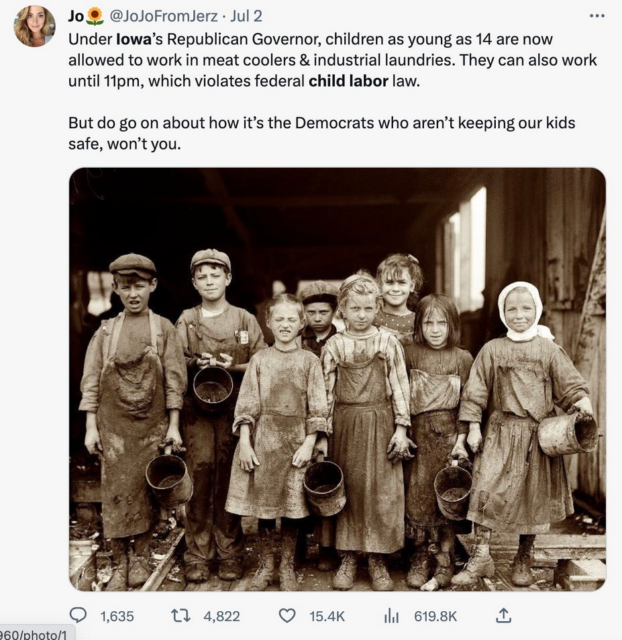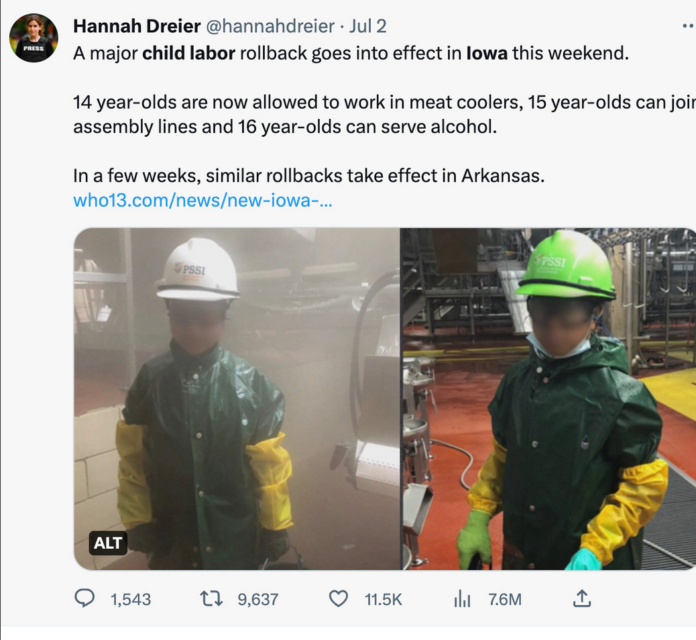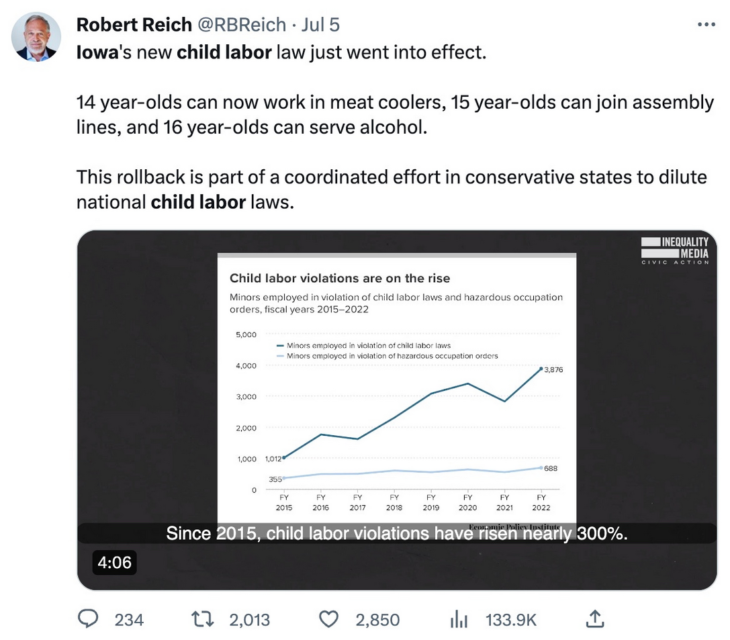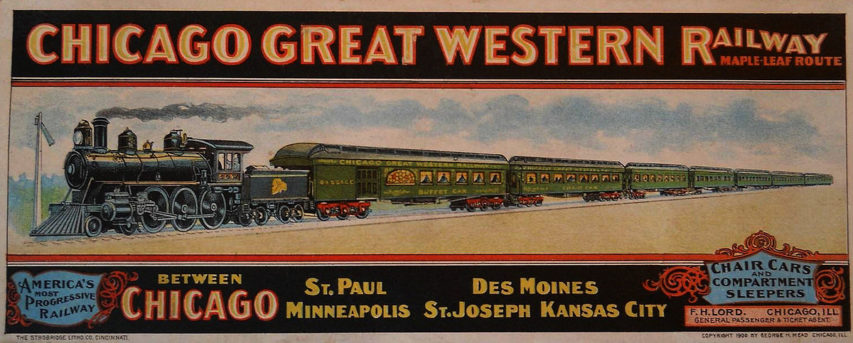In The Free Press, Batya Ungar-Sargon attempts to explain at least one aspect of the inexplicable-to-liberals Trump appeal for many Republican voters:
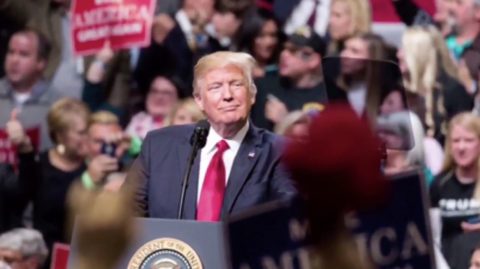
Donald Trump addresses a rally in Nashville, TN in March 2017.
Photo released by the Office of the President of the United States via Wikimedia Commons.
To the surprise of no one and the dismay of the liberal commentariat class, former president Donald Trump has crushed the first GOP primary election.
Iowa, which voted twice for Barack Obama before flipping to Trump in 2016, gave Trump a decisive win Monday night. And in Iowa, as in the Republican Party and the country more generally, the class divide was the defining feature of the night.
According to MSNBC’s early entrance polls, Trump won voters without a college degree by 65 percent, to Florida governor Ron DeSantis’s 17 percent and former UN ambassador Nikki Haley’s scant 8 percent. Trump won college grads, too, but by a much slimmer margin — just 35 percent caucused for Trump. Haley, meanwhile, got nearly as many — 33 percent, with DeSantis trailing at 23 percent. The AP had a similar breakdown.
That’s a 30-point gap in support for Trump — and a 25-point gap for Haley. It’s the gulf separating the college-educated from the working-class, who don’t just have different candidates of choice but different concerns, different struggles, and different priorities.
Working-class Americans are worried about the economy, immigration, our foreign entanglements, and the disappearing American Dream — all issues Donald Trump not only talks about but has a solid record on. Haley represents the GOP that Trump replaced — the free-market, chamber-of-commerce, nation-building version of the party that is dominated by a donor class whose interests are completely at odds with those of the working class.
Unfortunately for Haley, her party is now the party of the working class. In 2020, Bloomberg found that truckers, plumbers, machinists, painters, corrections officers, and maintenance employees were among the occupations most likely to donate to Trump (Biden got the lion’s share of writers and authors, editors, therapists, business analysts, HR department staff, and bankers.) As much as the Republican donor class wishes Haley were the party’s nominee, there’s no going back for your average corrections officer.
The thing liberals don’t understand about the average Republican voter in 2024 is that they hate the Republican Party. The average liberal feels well-represented by the Democratic Party because the Democrats’ base, like the party leadership, are college-educated elites. They share the same list of priorities. But the average Republican voter is working class and truly loathes the Bush-era version of the Republican Party, which meant tax cuts for the rich, failed wars, and an economic agenda that outsourced jobs to China.
Whether they realize it or not, this is why Democrats truly hate Trump. Without him, the left would soon have had a pretty permanent monopoly on power.
But if Iowa is any indication, not so soon after all.
Should Trump manage not to get thrown off the ballot (or sent to jail) by the time the election rolls around, he can’t count on Justin Trudeau for support:
Prime Minister Justin Trudeau says voters in the United States will face a choice later this year between optimism for the future or nostalgia for a past that never existed.
Trudeau made the comments in Montreal today to a business crowd in reference to Donald Trump’s victory Monday in the Iowa Republican caucuses, which gives the former president an early lead for the Republican nomination ahead of the November election.
The prime minister says a second Trump presidency would be difficult for the Canadian government, as there are many issues on which he and former president disagree.
On Monday, a majority of Iowa Republican supporters said they back Trump’s “Make America Great Again” movement.
Though he didn’t mention Conservative Party Leader Pierre Poilievre by name, Trudeau said Canadians will face a similar choice to American voters when they head to the polls.

